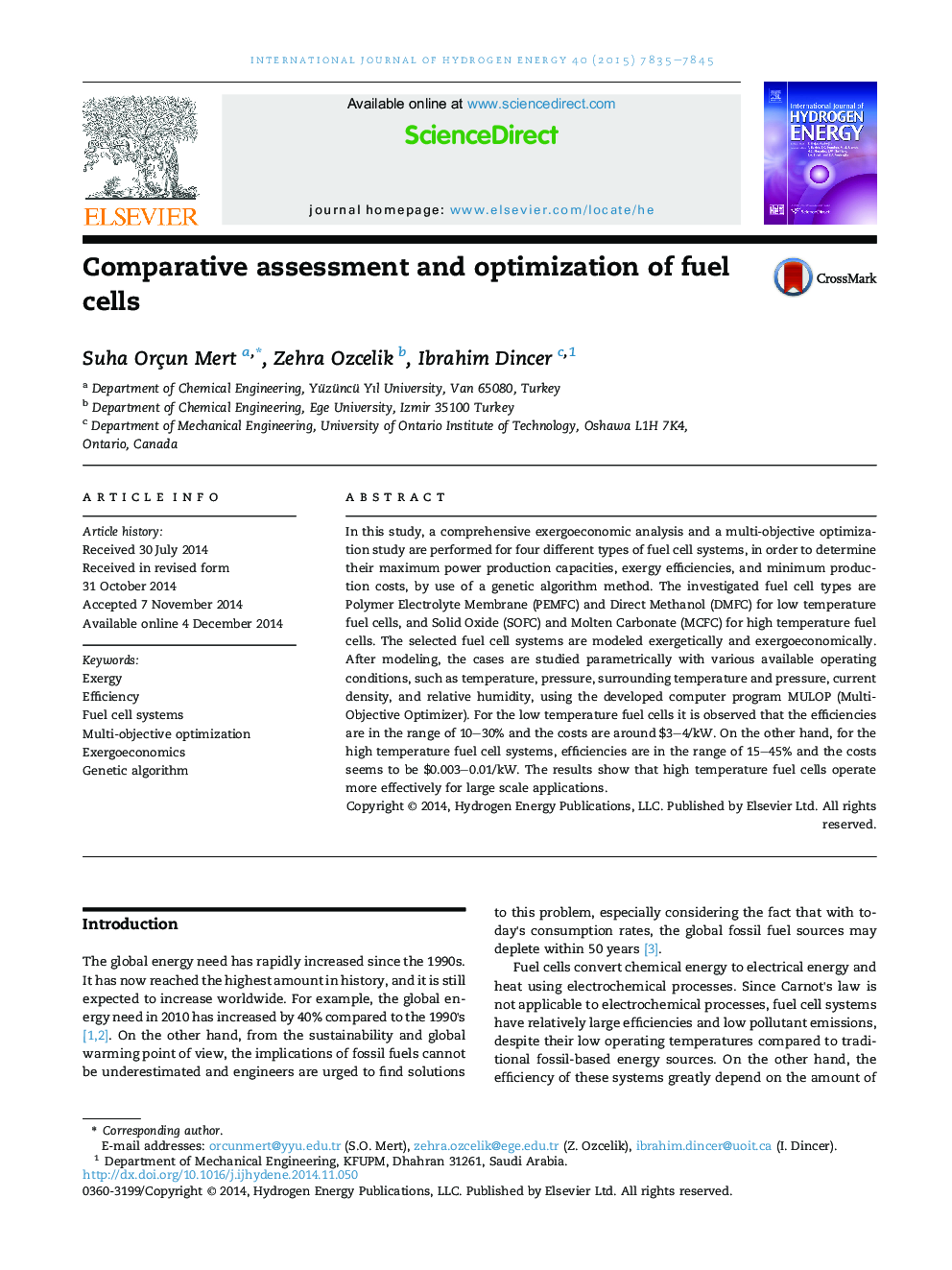| Article ID | Journal | Published Year | Pages | File Type |
|---|---|---|---|---|
| 1279759 | International Journal of Hydrogen Energy | 2015 | 11 Pages |
Abstract
In this study, a comprehensive exergoeconomic analysis and a multi-objective optimization study are performed for four different types of fuel cell systems, in order to determine their maximum power production capacities, exergy efficiencies, and minimum production costs, by use of a genetic algorithm method. The investigated fuel cell types are Polymer Electrolyte Membrane (PEMFC) and Direct Methanol (DMFC) for low temperature fuel cells, and Solid Oxide (SOFC) and Molten Carbonate (MCFC) for high temperature fuel cells. The selected fuel cell systems are modeled exergetically and exergoeconomically. After modeling, the cases are studied parametrically with various available operating conditions, such as temperature, pressure, surrounding temperature and pressure, current density, and relative humidity, using the developed computer program MULOP (Multi-Objective Optimizer). For the low temperature fuel cells it is observed that the efficiencies are in the range of 10-30% and the costs are around $3-4/kW. On the other hand, for the high temperature fuel cell systems, efficiencies are in the range of 15-45% and the costs seems to be $0.003-0.01/kW. The results show that high temperature fuel cells operate more effectively for large scale applications.
Keywords
Related Topics
Physical Sciences and Engineering
Chemistry
Electrochemistry
Authors
Suha Orçun Mert, Zehra Ozcelik, Ibrahim Dincer,
